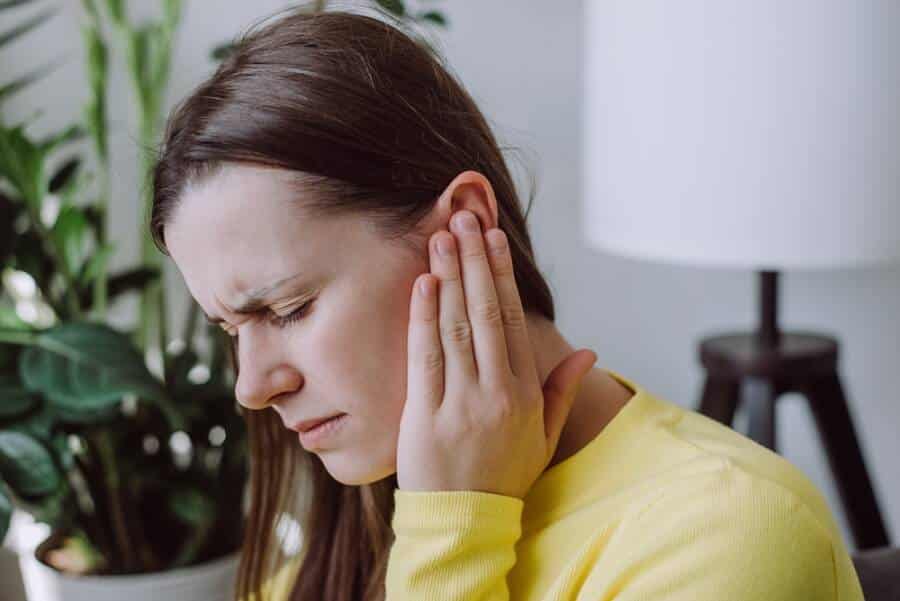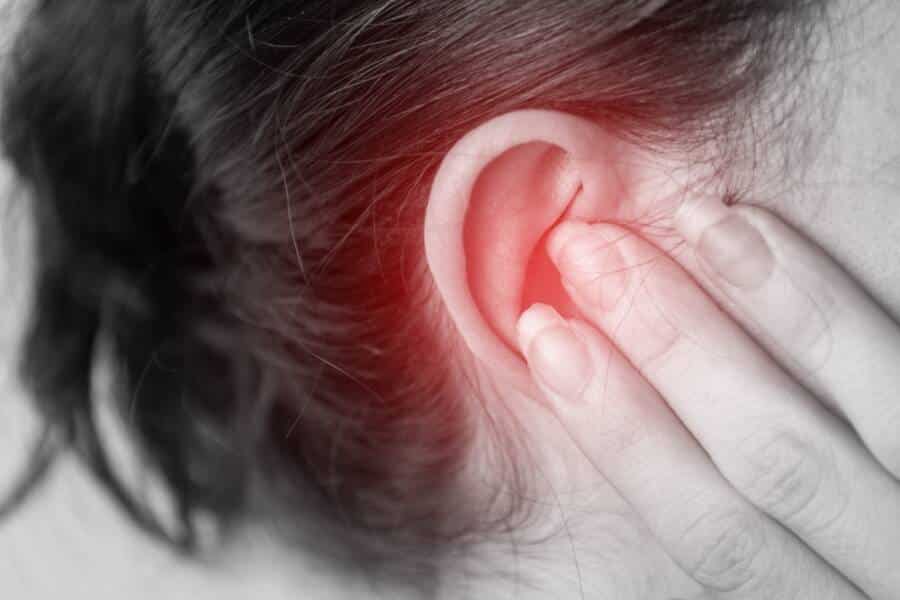Do you know what Tinnitus is?
Tinnitus is an annoying sound only the person who experiences it hears. It manifests as a whooshing, buzzing, ringing, or clicking noise. It’s experienced differently from one person to another, being either whisper-soft, piercing, constant, or intermittent. Even though we don’t exactly know what the cause for this one is, one thing’s for sure: it can make you mad!
Scientists developed different treatments for this health issue, but there’s no specific cure. According to experts, approximately 26 million adults in America are affected by this and many of them said the symptoms are only minimal, so they easily ignore it.
But the rest of 20% of them, on the other hand, said that tinnitus is a constant distraction that doesn’t let them sleep or focus, and in severe cases, it can even lead to anxiety and depression.

But before we talk about all the methods to get rid of it, we have to understand what tinnitus is!
First things first, you have to understand that you hear this annoying sound with your brain, not your ears. This happens when someone’s brain detects an imaginary sound and tries to recognize it but is unable to. As a result, the brain keeps focusing on that sound, trying to piece together the mystery.
Since it doesn’t succeed, this sound becomes the focal point of its attention. Your brain tries its best to concentrate on the phantom sound, and the more it does it, the more important and louder the noise gets. Experts describe this as an unfortunate side effect of how our brains work.
Causes and types
If you’ve experienced something like this, you must know that tinnitus is a symptom, not a disease. Some of the most popular causes include exposure to loud noise, such as a rock concert, on the battlefield, or working in a factory. Experts also discovered some medicines that can trigger the appearance of this symptom, like aspirin and different antibiotics.
Speaking of that, there are two types of tinnitus:
- subjective – more common. Only the person experiencing it can hear these sounds;
- objective – very rare. It’s usually the result of an underlying medical condition and can be solved by addressing the root cause. Moreover, this sound is heard by the patient, as well as those around them.
Now that you know more about this symptom, it’s time to discuss all the ways you can deal with it…
1. Seek professional help
If you start hearing a pesky noise in your ear, it’s time to reach out to a doctor. The first one you should go to is your primary care physician, who could tell you if there’s a hidden medical issue you might be dealing with.
In case the issue persists, the next one you should visit is a hearing health professional, who could perform extra nerves and hearing tests, and even a CT scan or an MRI if needed.
2. Check out your medications
Other popular medicines that can affect tinnitus are diuretics and cancer drugs. During a multi-year health study, over 60,000 women using ibuprofen (Advil) for various types of pain were found to be at a higher risk of developing tinnitus compared to those who didn’t take this medicine. Of course, this doesn’t mean you should say goodbye to your medication if you don’t feel well, but don’t rely too much on it.
Even though the study doesn’t say certain medications can 100% cause this annoying ringing in your ears, there’s a connection between them. If you’re not sure about the safety of the drugs you take, it’s best to discuss it with your doctor about it because there are always alternatives available.

3. Get your earwax removed
One of the most common causes of tinnitus is an excess of ear wax. If that’s the problem, you can easily solve it by going to an otolaryngologist. If you’re used to cleaning your ears with cleaning cotton buds, stop it immediately, because you push the wax even further and even perforate the eardrum.
There are, of course, several DIY methods to remove your earwax at home, but it’s best to seek out professional help at first and then ask the doctor to give you a maintenance method you can try by yourself. This will ensure you don’t do anything wrong that could potentially cause more harm than good.
4. Try sound therapy
Sound or acoustic therapy is often an effective way to ameliorate tinnitus, especially at night. You can get a sound machine with calming music and relaxing sounds for background noise. You can put on any sound you find calming and pleasing; It doesn’t need to be loud, just enough to help you focus on it, rather than the buzzing sound in your ears.
5. Give cognitive behavioral therapy a try
One of the most popular treatments for tinnitus amelioration is changing the patient’s reaction to the sound. The goal of cognitive behavioral therapy (CBT) is to help you feel better by working with a therapist who can guide you in managing your emotions and easing your reactions to challenging situations.
According to a 2014 review of studies published in the “Journal of the American Academy of Audiology”, CBT is the most evidence-based option for managing tinnitus, so you could give it a try.

6. Say goodbye to nicotine and alcohol
Even though there isn’t enough evidence to support the affirmation that alcohol can indeed cause tinnitus, it’s still worth keeping in mind. What alcohol does is increase your risk of high blood pressure and dehydration, both of which can interfere with the buzzing in your ears.
Moreover, experts also discovered that smokers are more likely to develop this annoying symptom as opposed to nonsmokers. Even though we can’t exactly link these two unhealthy habits with tinnitus, we can’t argue that quitting smoking and alcohol is indeed good for your brain and body.
7. Try a Mediterranian diet
You’re probably sick of constantly hearing the expression “You are what you eat,” but it’s true, and we have to discuss it. The things you put in your body can affect your health and your mindset in both good and bad ways.
For instance, always eating greasy foods, drinking lots of soda, and not feeding your body with the proper foods can make you feel lethargic, upset, unmotivated, and, of course, unhealthy.
According to doctors and dietitians, the food you eat can also affect your tinnitus. To ameliorate these symptoms, you should consume foods that are nutritious and good for your body, such as veggies low in carbs, foods that are rich in omega-3 fatty acids, leafy greens, and lean proteins. Try to limit sugar and salt as much as possible, because they were discovered to elevate the sound in your ears.
If you crave something unhealthy, I recommend you make kale chips with nutritional yeast or make a bowl of Greek yogurt with apples and cinnamon for a sweet treat. Here’s a book with several Mediterranean diet recipes that will make both your stomach and soul happy! These foods are delicious, good for your body, will help you shed pounds, and also ameliorate the buzzing sound in your ears.
Have you ever experienced tinnitus? How did you get rid of it? Let us know in the comments below! And if you have any tips for people in similar situations, please do tell us! If you find this article helpful and would like to check out something else from Healthy Reads, here’s a good post for you: 14 Weird Things That Show Up on Your Skin After 50







One reply on “7 Proven Ways to Tackle Tinnitus Effectively”
Not very helpful. I would suggest what I do, since I have it for over 20 yrs.–IGNORE IT.
I have also found that stress and anxiety aggravate it, so perhaps taking a sedative might help. I have tried this several times with what appears to me some success.
Using hearing aids also helps. I have tried it with success. The problem is that when you remove them you will feel that sound with greater intensity that will last for a while until you once again reach your routine.